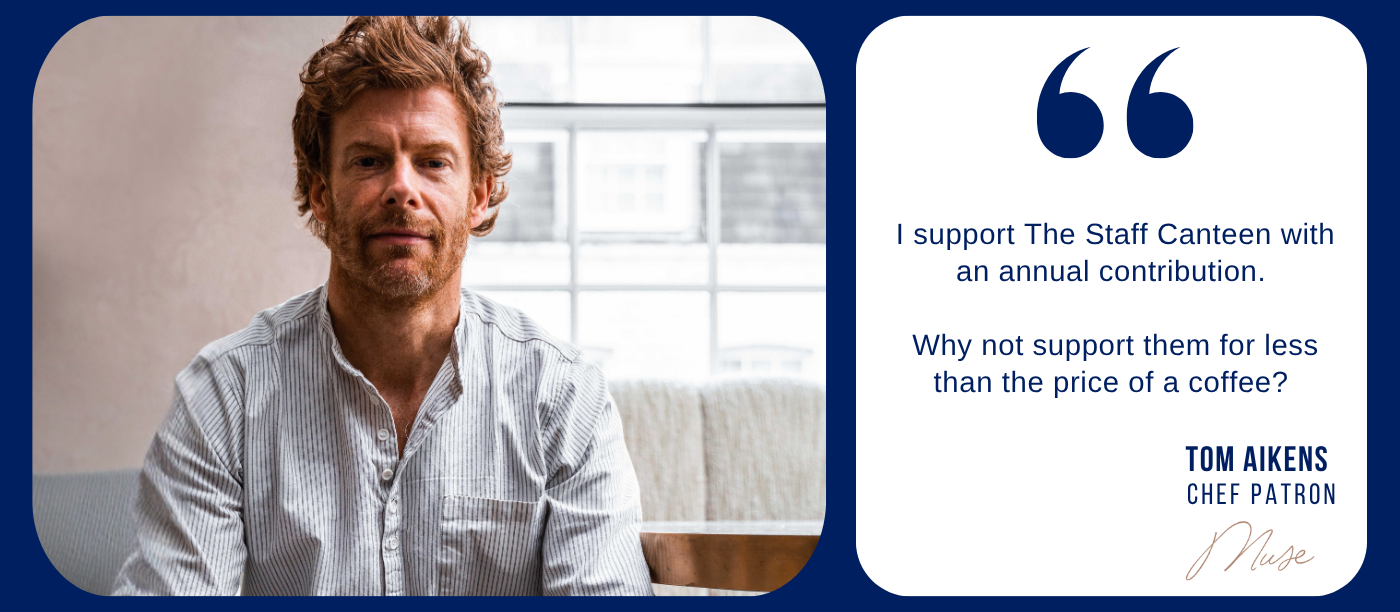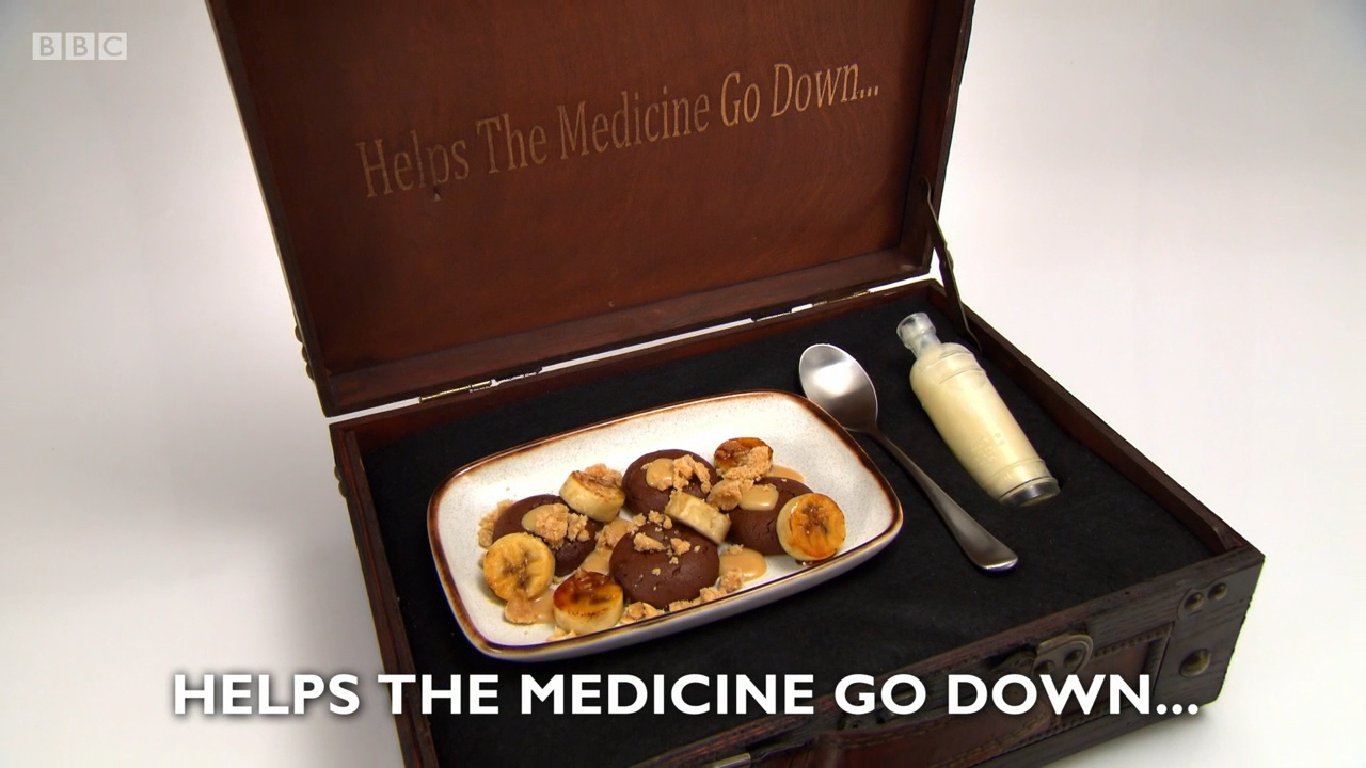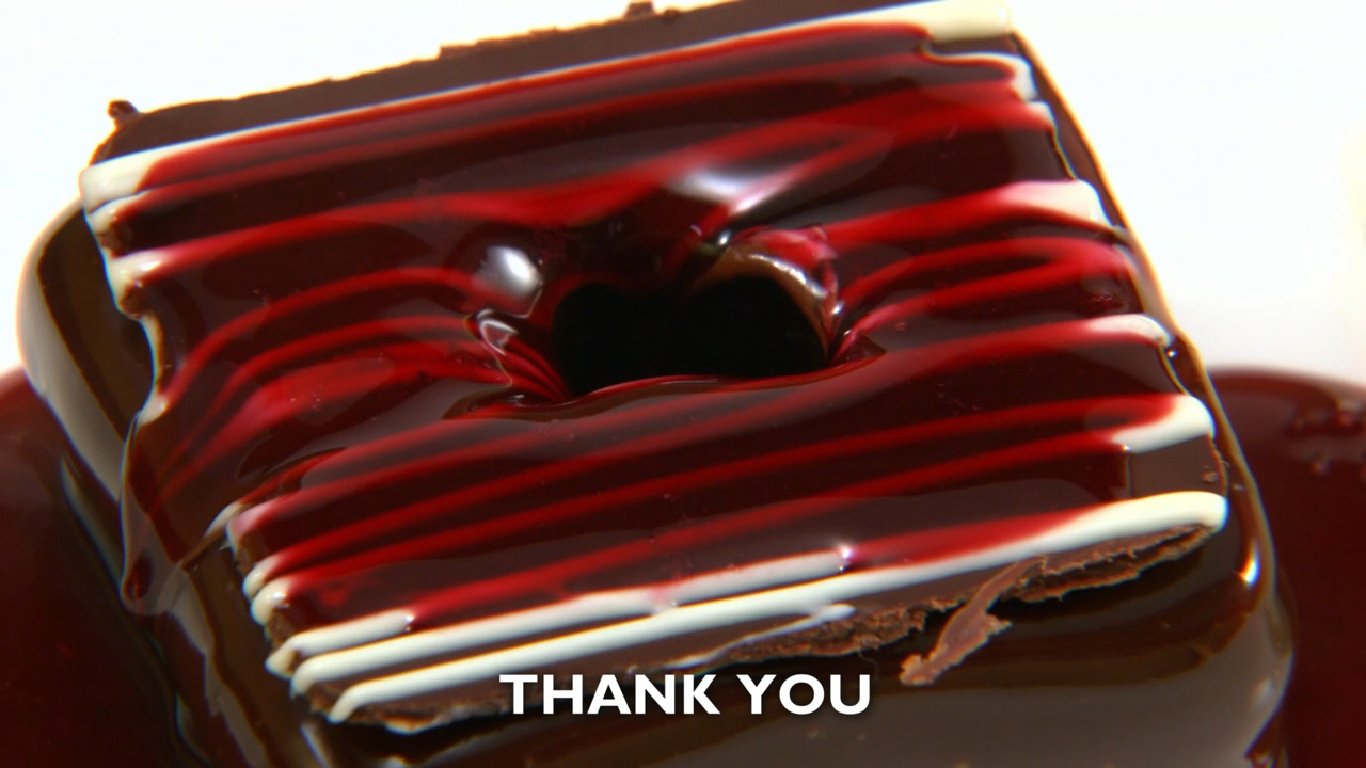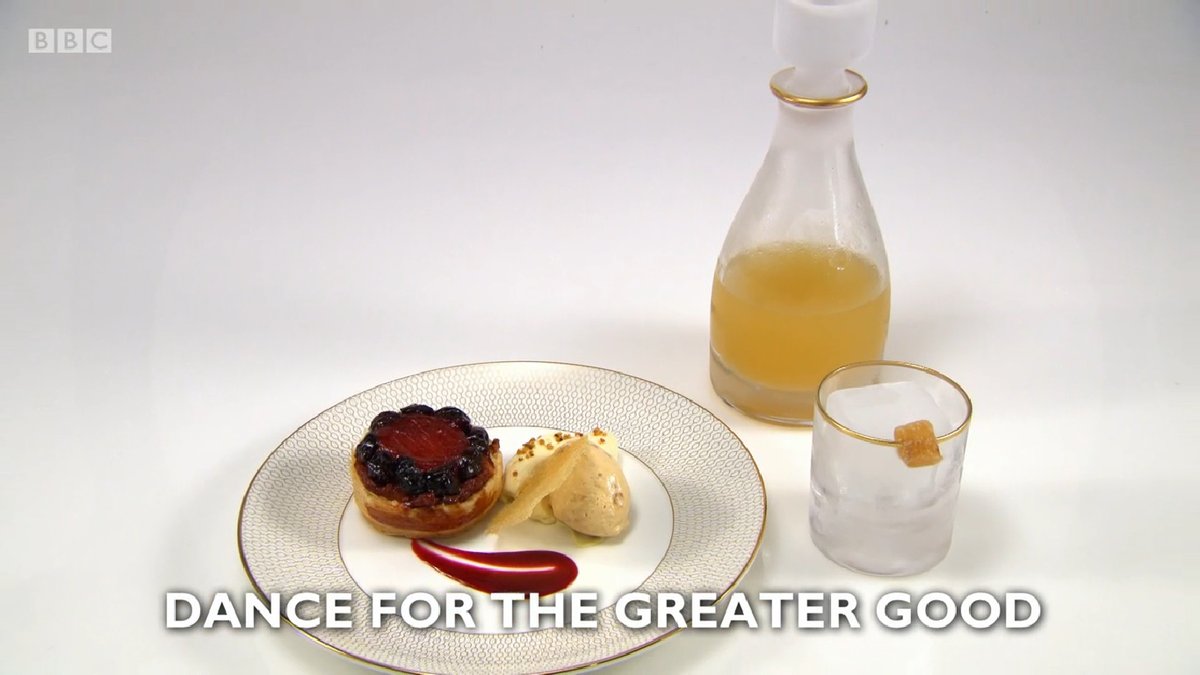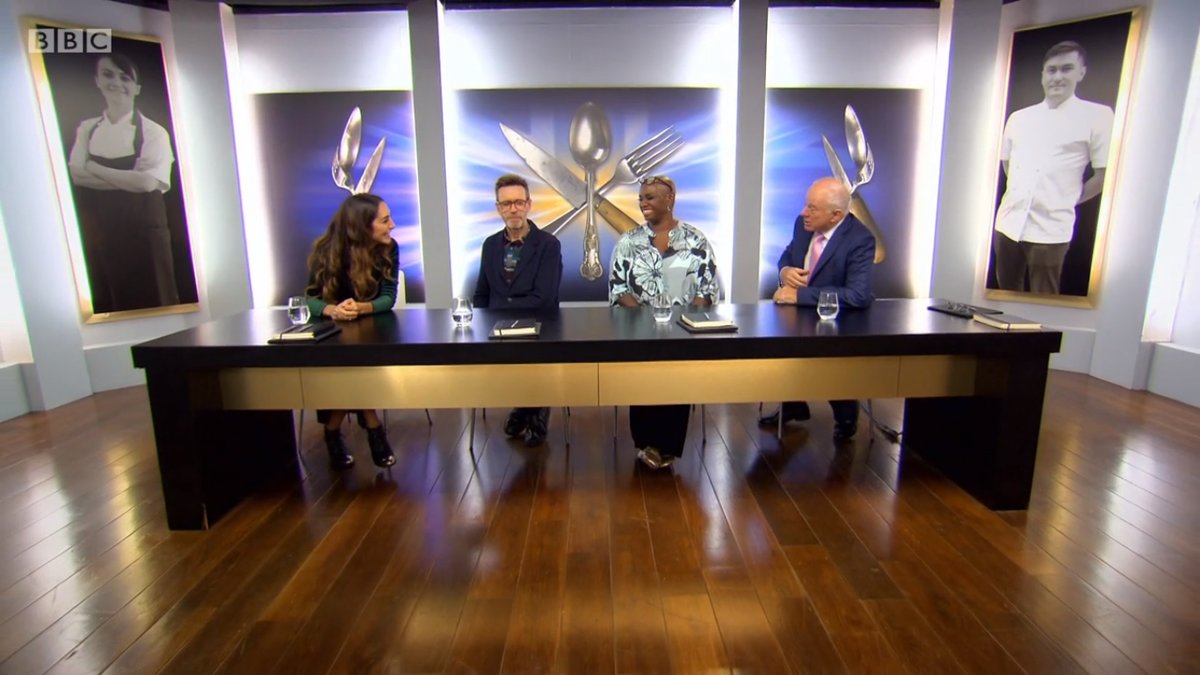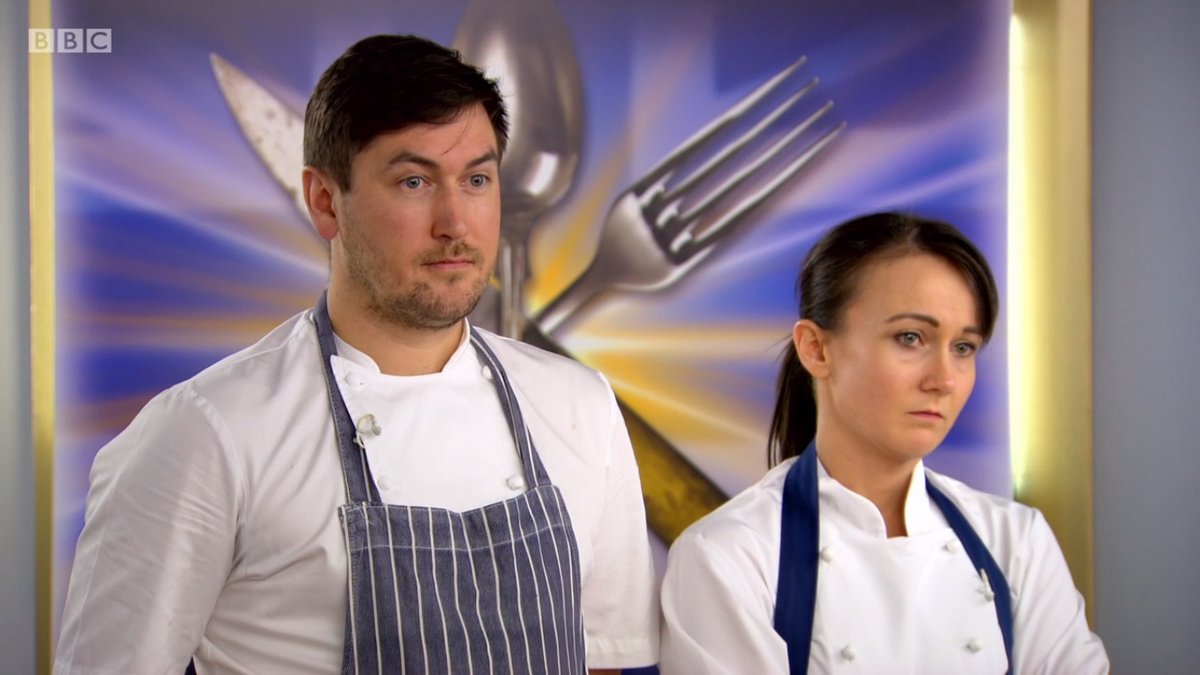The Great British Menu is back and the contestants this week are from Scotland. The chefs have begun the battle to get the chance to cook at a banquet honouring 70 years of the NHS.
Entering the kitchen this week were Lorna McNee, junior sous chef at Andrew Fairlie at Gleneagles; Benedict Reade of Edinburgh Food Studio and Ross Bryans who has previously worked at Pollen Street Social and Corrigan's Mayfair.
Week 3 of the Great British Menu had the chefs from Scotland come into the kitchen for their chance to be in the banquet celebrating 70 years of the NHS.
The three chefs, Benedict Reade, Lorna McNee and Ross Bryans, were all new to the competition and had a lot of experience behind each of them.
Ross Bryans, who has worked under an array of well-renowned chefs, including the three-time winner of the Great British Menu Richard Corrigan and Gordon Ramsay came into the competition with a lot of previous experience.
Lorna McNee has already received a number of awards before coming onto the Great British Menu. As Game Chef of the year in 2016 and former Scottish Chef of the Year in 2017, she already had a wealth of experience coming into the competition.
Ben Reade, of the Edinburgh Food Studio, is a very conceptual chef with experience as Head of Research and Development at the Nordic Food Lab in Copenhagen.
Judging them this week was Phil Howard who has achieved 2 Michelin-stars with his restaurant, The Square, Mayfair. This meant the chefs would have to really create something remarkable to impress him.
First to plate up was Ross. His dish, ‘No Bones About It’ was inspired by having bone broths when he was poorly in his youth. It involved a chicken feet broth, pickled turnips and a rolled oat skirlie dumpling. In addition to this, he added baby pearl onions and carrot diamonds.

Second up was Lorna, she made a layered dish titled ‘Celebrating the Best With the Best’. A luxurious dish served in a caviar tin its layers were made up of a fennel mousse, yuzu jelly and steamed crab claw with a decadent layer of caviar on the top. She made rosemary focaccia crackers to be served on the side.

Last up to the pass was Ben. His highly conceptual dish ‘A Bouquet of Thanks’ had three types of vegetables all pickled in different flavours arranged to look like flower petals. These were next to buckwheat crackers and on top of a goats cheese and horseradish mousse.
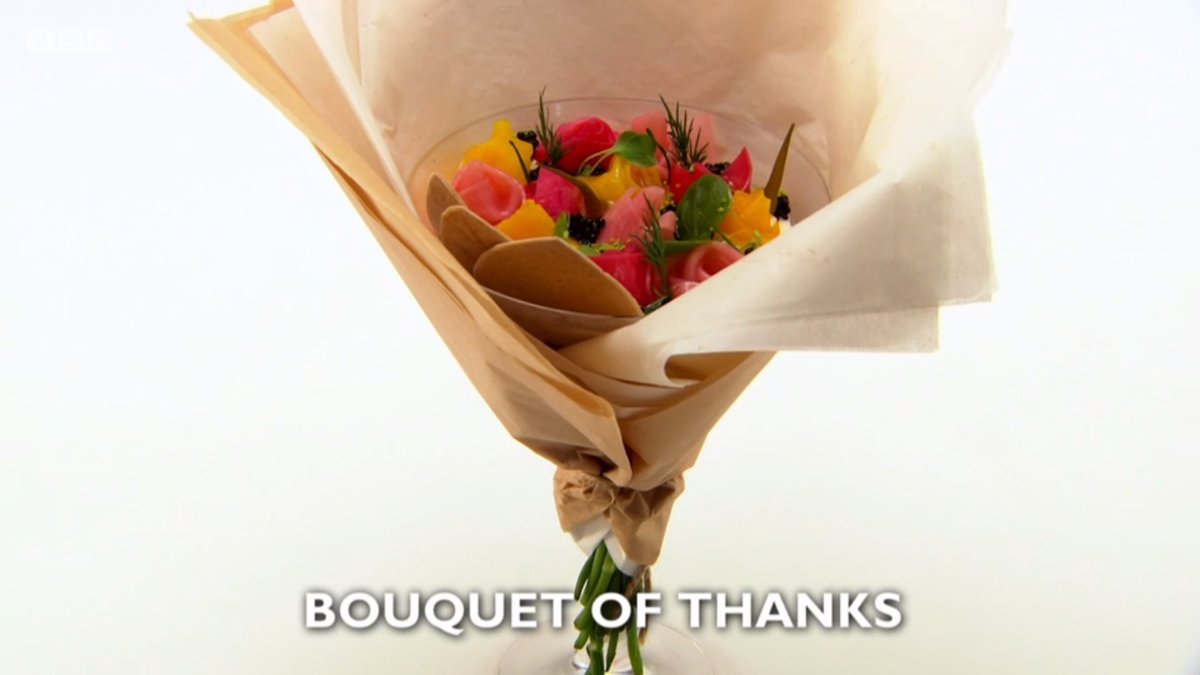
Veteran chef Phil Howard began the week by giving Lorna and Ben an 8 for each of their dishes while Ross fell behind with a 6. Phil found Ross’ broth exceptional but thought that more could have been done with the garnish. In contrast, Lorna’s dish was labelled as luxurious and Ben was told he smashed it despite the goat's cheese not being special enough.
The fish course
It was time for the Scottish chefs to create their fish courses and all three chefs opted to showcase Scottish lobster in their dishes. Judge Phil Howard pointed out that a lobster dish has never got a place at the Banquet before, but stressed that there’s a first time for everything!
Lorna McNee was taking a much simpler approach. Her dish ‘Live Well, Live Very Well’ was a nod to how well the NHS look after us. She poached lobster in smoked butter and used the head to make a lobster bisque, with three different alcohols – white wine, brandy and aniseed liqueur. Her fish course was served with flash fried vegetables. With just three components to the dish, the pressure was on for Lorna to get her flavour balance just right, and for her lobster to be cooked perfectly.
She was first to plate up and served her dish in a glass cloche with whiskey smoke for dramatic effect. Phil said that the dish was 'beautifully executed' and commended her cooking of the lobster. He thought that the cloche tied in well with the smoked butter flavours and gave a bit of theatre to the dish. He did, however, add that the stir-fried vegetables lacked some aromatics, and the sauce was a bit thin - he would have liked it to have coated the lobster.
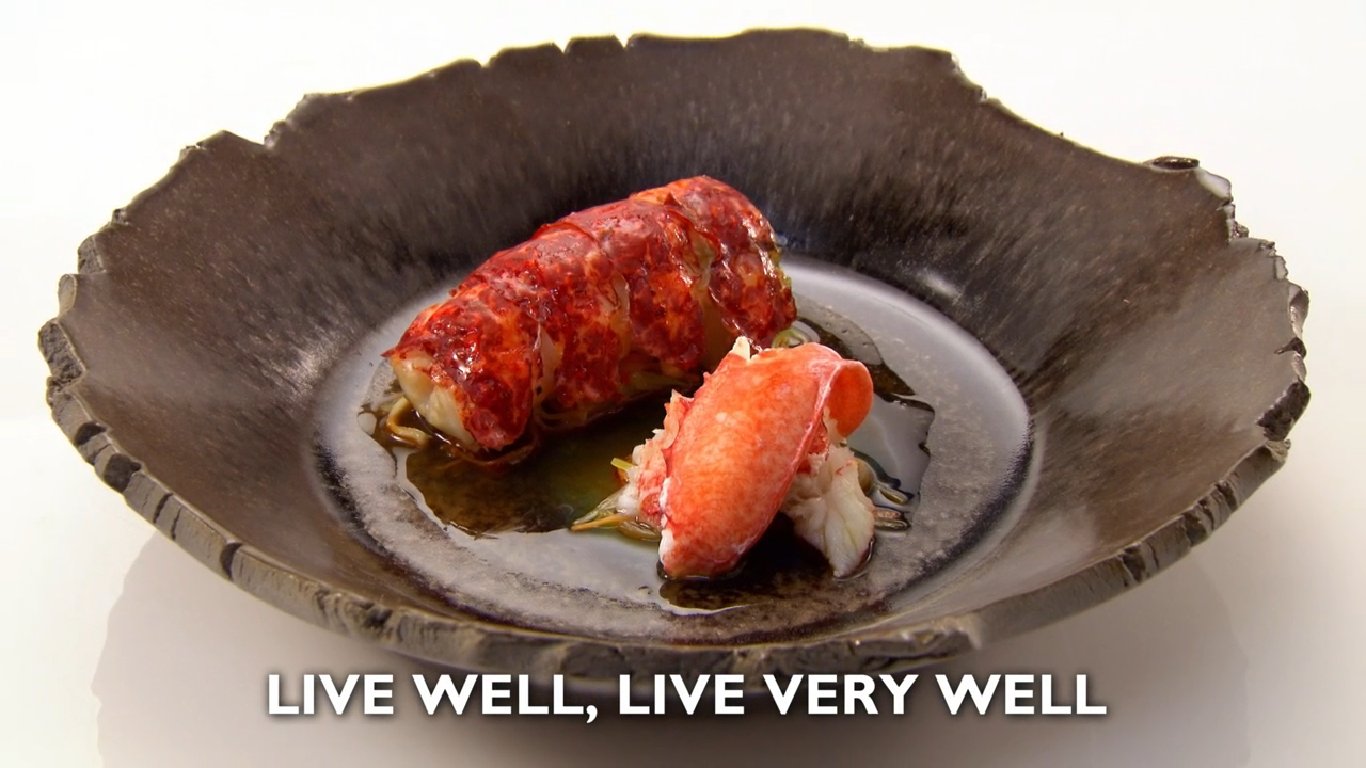
Ben Reade was taking a huge risk with his dish, ‘The Multicultural Lobster’. A nod to the culturally diverse backgrounds of NHS staff, he was cooking several complicated elements for his dish. The lobster tails were cooked with kalamansi lime, a Filipino ingredient, then the claws were stuffed inside spring green leaves - a take on polish golabki. His biggest challenge was to make all of the ingredients work together in harmony.
The other chefs were worried that the lobster was undercooked. Phil was impressed with how Ben brought all of his ingredients to come together, but he thought that the rice wasn't very elegant and called it 'a low point on the plate'. He also didn't think that the clams added anything to Ben's dish and agreed that the lobster was undercooked.
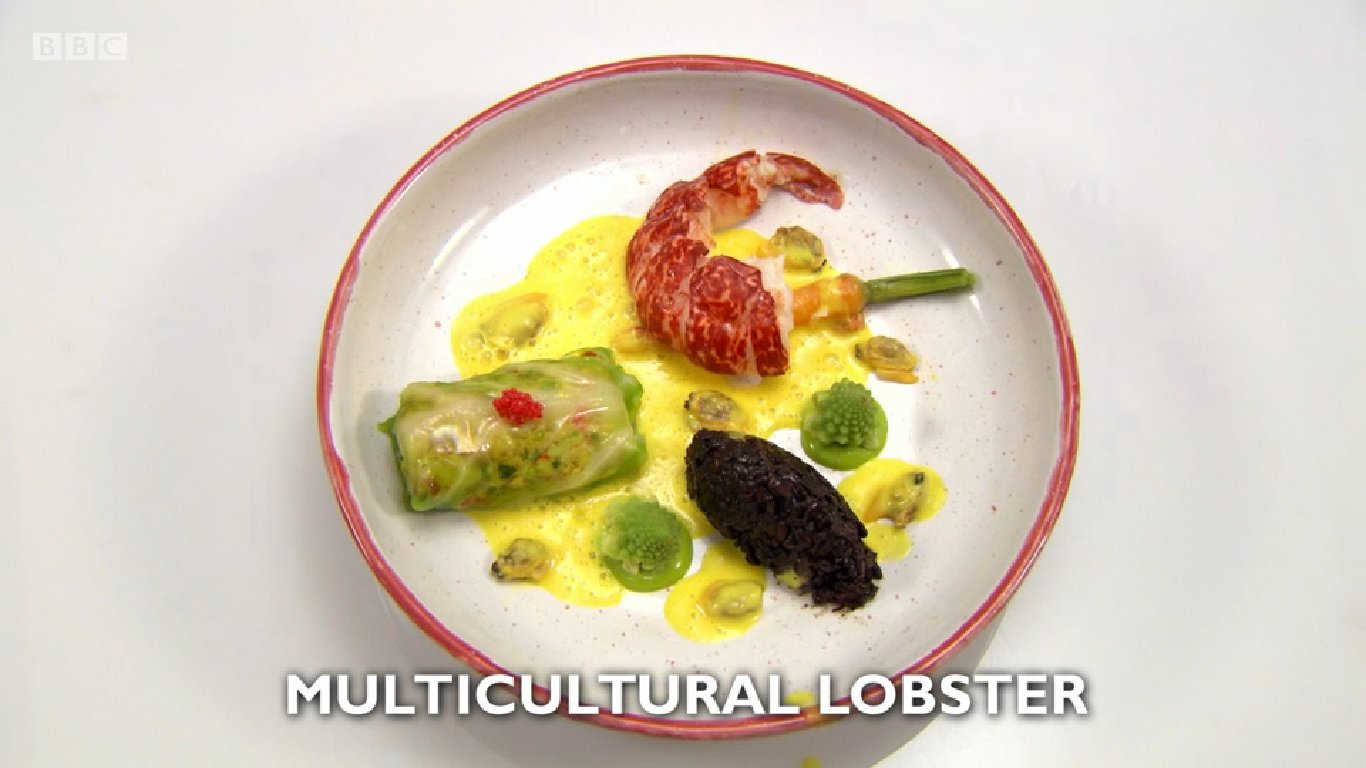
After a disappointing start to the week, Ross Bryans was hoping to close the points gap with his dish dedicated to his cousin, who works in the NHS. A charity runner, she often opts for a big plate of lobster pasta before a race so Ross’ dish ‘Lobster Aid’ was a tribute to that. He was poaching lobster and serving the tail and the claw with a carrot puree made with anise. He was also making a sauce with dulse seaweed, pickled pink peppercorns and dill.
To finish the dish, Ross was making a squid ink and tapioca cracker, but he was concerned that the mix wouldn’t dehydrate fully in time for service. Phil called it 'absolutely delicious' and said that he had nailed the cooking of the lobster. He thought that the crackers added 'a beneficial crunch' but he wasn't sure if the dish had enough theatre for the Banquet.
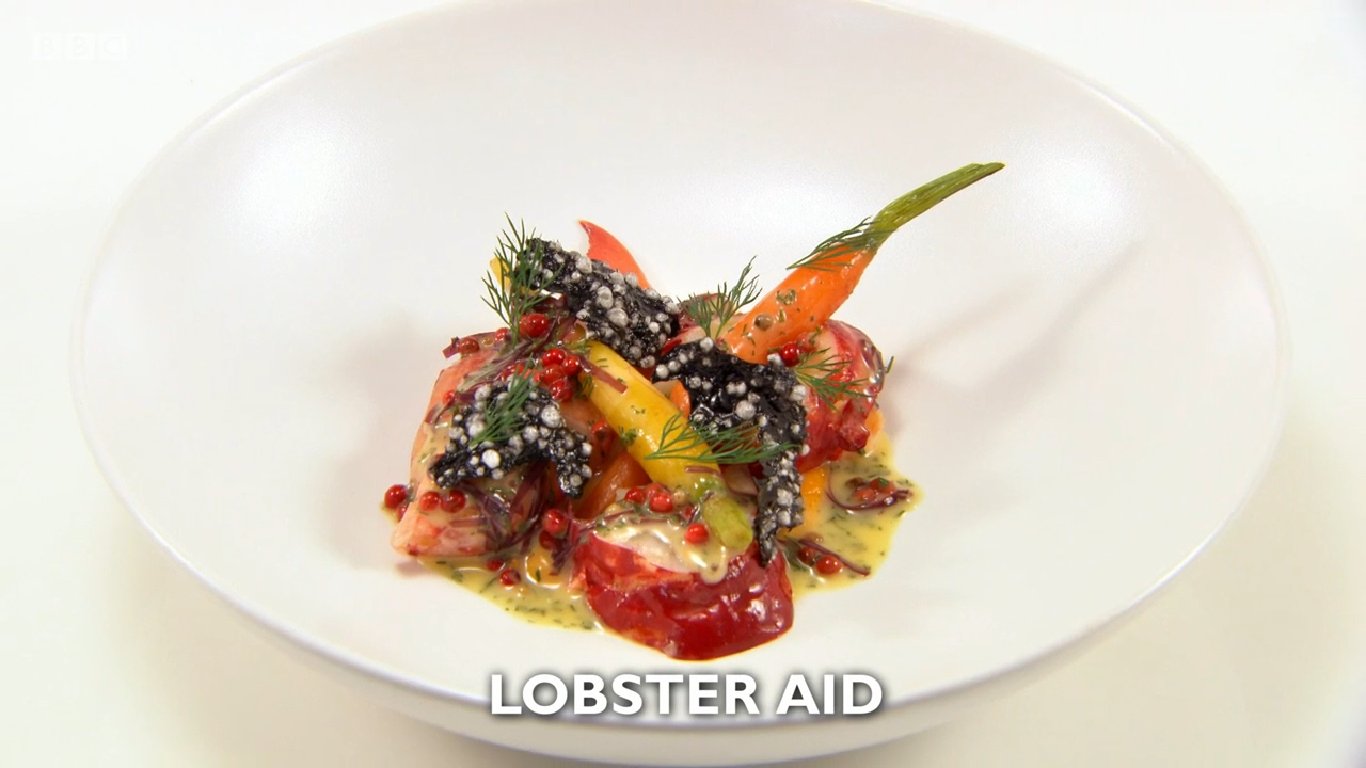
When it came to the scores, Phil awarded Ben a 6, Lorna another 8 and Ross a very high 9. Lorna is now in the lead with 16, Ross is second with 15 and Ben is behind on 14. That means that it is still everything to play for as the chefs head into the main course.
The main course
Last night saw a double helping of Great British Menu as the chefs from Scotland tackled the main and dessert courses. All eyes were on Lorna McNee, who previously won the Game Chef of the Year competition, but her competitors Ross Bryans and Benedict Reade were ready to put up a fight. There was only one point between each of the chefs, so there was a lot to play for.
Ben was once again hoping to impress with his experimental food style. His duck dish, ‘Disruption of Ward Two 1951’ was based on a menu served at the Royal Infirmary of Edinburgh back in the fifties.
The star of his dish was Saxony duck – a popular post-war meat. He cooked the duck in stages – first smoking it with juniper, then glazing with apple before roasting it in duck fat. The accompaniments on the original menu were very typical of the time – applesauce, duchess potatoes and cauliflower. He was hoping to modernise it with Duke of York potatoes, cauliflower puree, roast Hokkaido squash, a smoked blueberry jus and wild mushrooms. When serving, Ben added a glass cloche with smoke for added theatre.
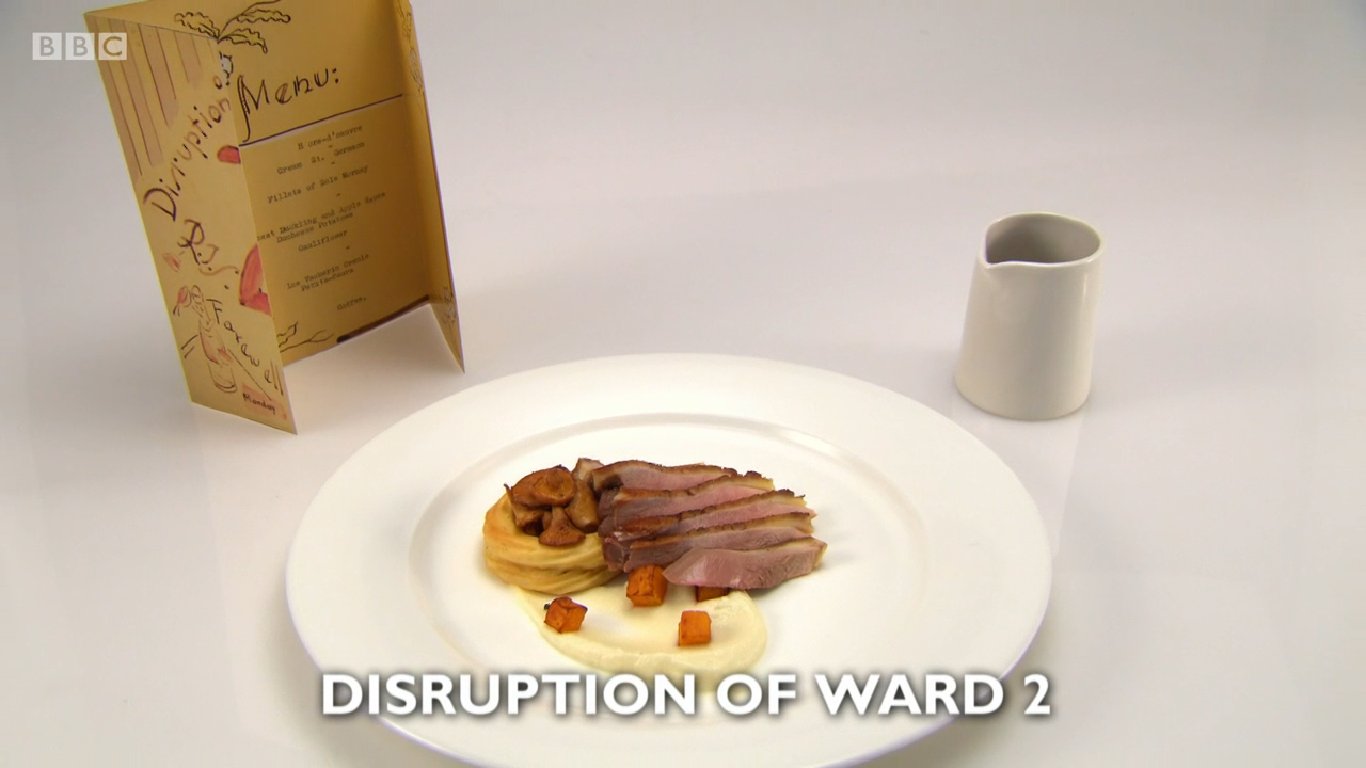
Following his high score in the fish course, Ross was hoping for another with his dish - a tribute to a great Scot Alexander Fleming who discovered penicillin in 1928. He was also opting to use roe deer in a venison wellington with mushroom duxelle and chicken mousse inside. Judge Phil Howard pointed out that doing a Wellington is always risky because you can’t tell how well the meat is cooked inside the pastry. He was also making a roasted yeast sauce to finish the dish, tying in with the theme.
To be served alongside the Wellington, Ross also made some sweet potato wedges and braised red cabbage.
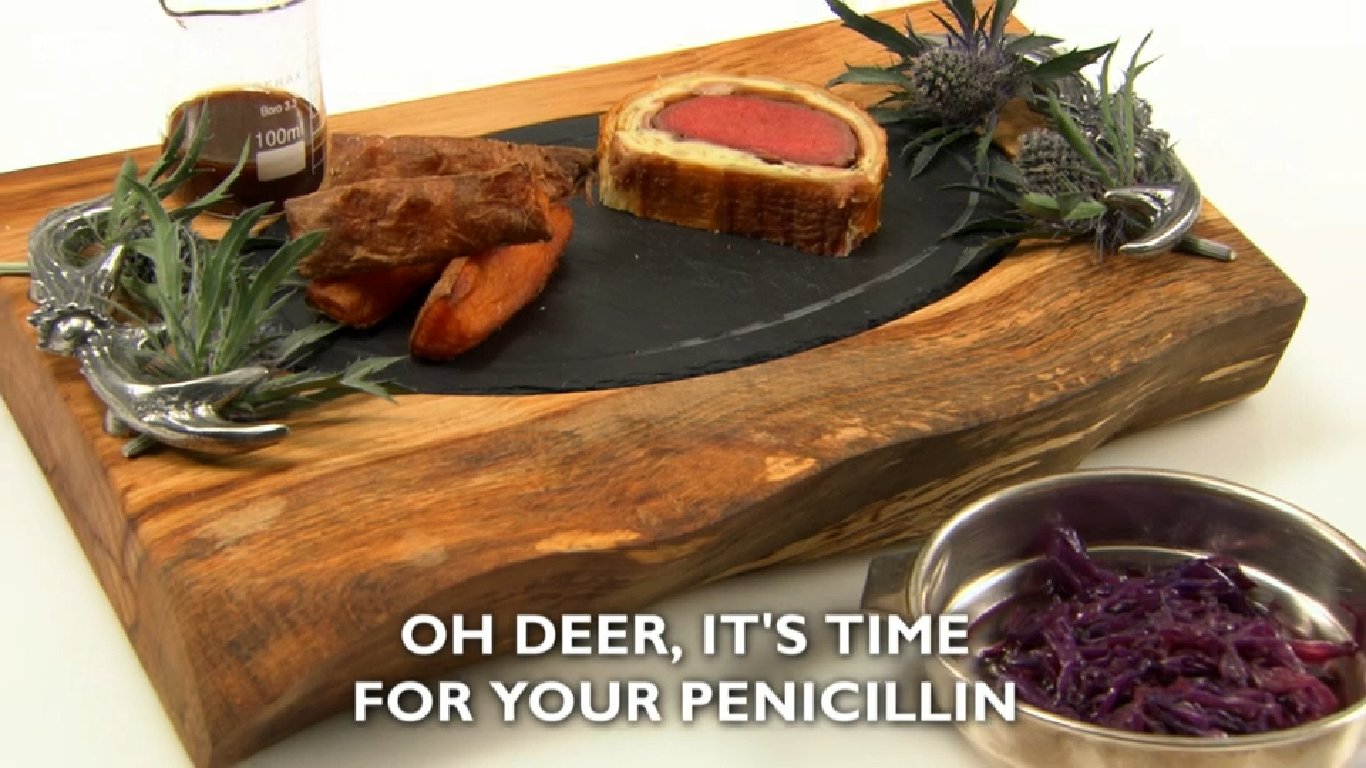
Lorna’s dish was a refined take on classic comfort food using modern techniques. She was cooking venison three ways, including a venison mince shepherd’s pie, a roasted venison fillet and venison ‘bon bons’. To accompany the meat elements of her dish, Lorna was making a celeriac puree and a truffle and port sauce, as well as wilted cabbage and roast parsnips. She originally planned to include pickled pears to bring some acidity to the dish, but once she’d made them, she didn’t like the flavour so decided to remove them from the dish altogether.
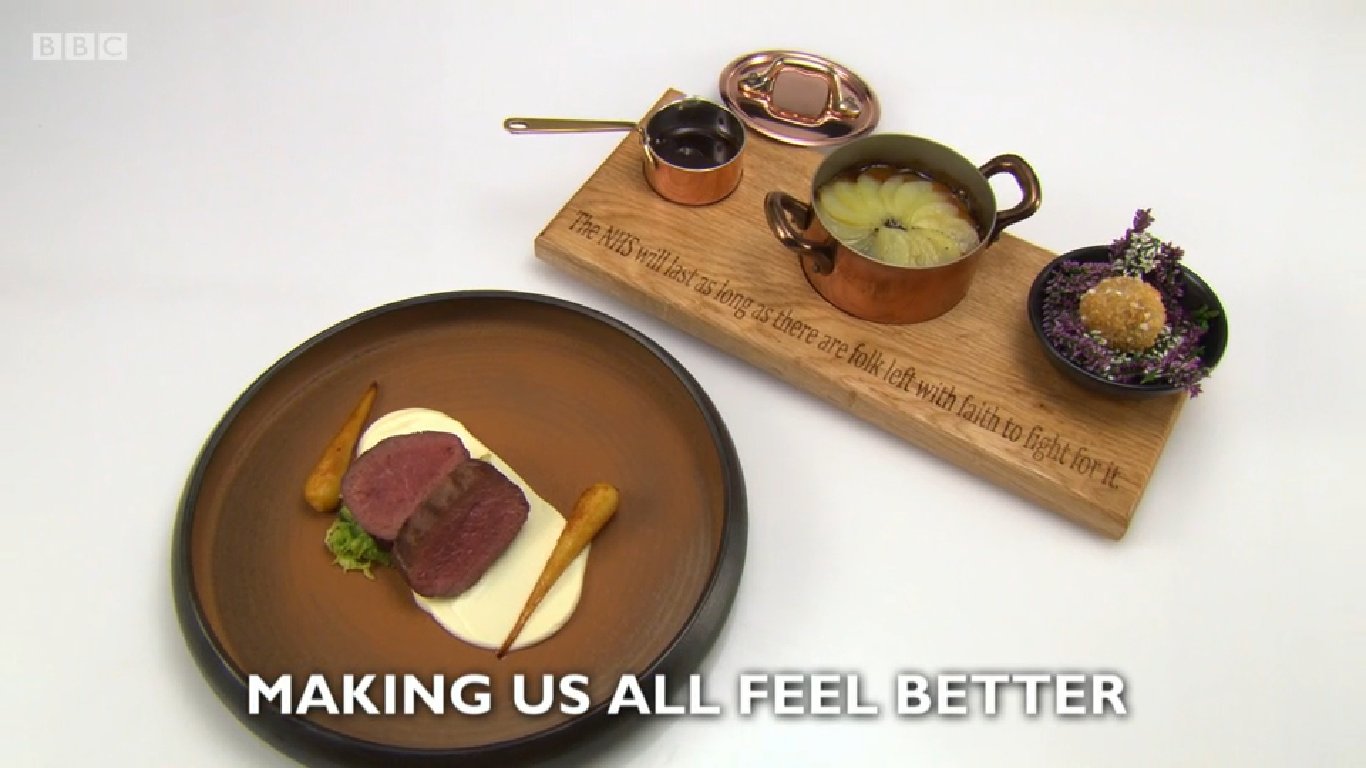
First











